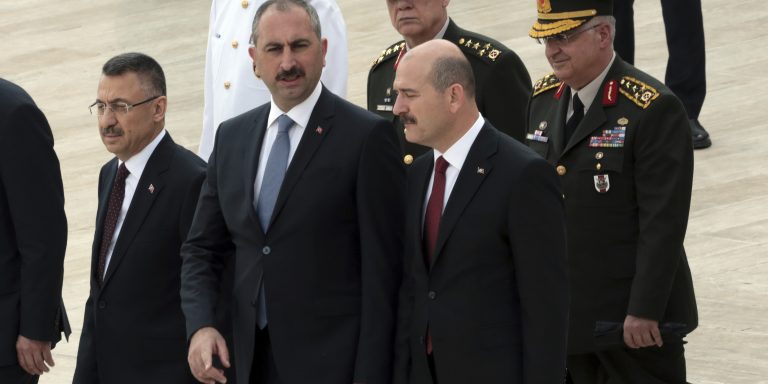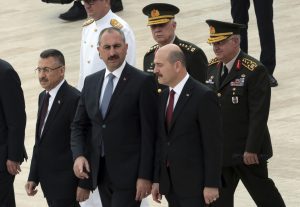INTELBRIEF
August 7, 2018
IntelBrief: Washington and Ankara at a Breaking Point?

- On August 1, the U.S. imposed sanctions against Turkey’s Minister of Justice Abdulhamit Gul and Minister of Interior Suleyman Soylu.
- The move, extremely rare between supposed allies, is over the continued detention of an American, Andrew Brunson.
- Relations between the two NATO members are perhaps at an all-time low and likely to get worse.
- Turkey’s steady move towards autocracy should trigger a discussion of its continued membership in NATO.
.
On August 1, the United States, using ‘Executive Order (E.O.) 13818, “Blocking the Property of Persons Involved in Serious Human Rights Abuse or Corruption,” which builds upon Treasury’s Global Magnitsky Act authorities,’ imposed sanctions against two high-level Turkish government officials. The use of the Global Magnitsky Act sanctions against Turkey’s Minister of Justice Abdulhamit Gul and Minister of Interior Suleyman Soylu are a dramatic escalation in the already strained relations between Turkey and much of the West in general, and the U.S. in particular.
While there are now many large geopolitical issues driving a wedge between Washington and Ankara, this specific issue is over the detention of Andrew Brunson. Brunson is an American pastor who was rounded up with another 20 or so Americans and tens of thousands of Turkish citizens in response to a failed July 2016 coup attempt. Ankara has explicitly accused the U.S. of being behind the coup and demanded the extradition of current U.S. citizen and former Erdogan confidant, Fethullah Gulen. Brunson has been detained for 21 months and his case has become a priority for the Trump administration’s Christian supporters. There are reports that President Trump personally discussed Brunson’s release with Turkish President Erdogan and tried to arrange a deal in which Israel released Ebru Ozkan, a Turkish citizen held under charges of providing financial support to Hamas, in return. Tel Aviv released Ozkan, yet Ankara refused to release Brunson. It is likely that Ankara, which has long used ‘hostages’ as diplomatic leverage, has overplayed its hand.
On August 3, U.S. Secretary of State Pompeo met with his Turkish counterpart, Mevlut Cavusoglu, during a summit in Singapore and discussed the impasse over Brunson. Pompeo told media outlets after the meeting that ‘the Turks were well on notice that the clock had run out and that it was time for Pastor Brunson to be returned.’ For his part, Cavusoglu stated that Turkey continues to believe that ‘a solution cannot be reached by using threatening language and sanctions.’ On August 1, Cavusoglu responded via Twitter to the announcement of the sanctions, saying they would ‘gravely harm the constructive efforts to solve the issues between our two countries’ and that they would not ‘go unanswered.’
Yet Turkey is in a weak position vis-à-vis the U.S. The Turkish economy, once a major source of Erdogan’s support, is soft, and its currency, the lira fell to an all-time low against the US dollar on August 3 amid these new tensions. Erdogan has become increasingly autocratic, and his recent election and new presidential powers are marked more bysupport built on grievance and a sense of unity against external and internal ‘enemies,’ than on economic gains and government accomplishments.
Turkey has always been an uneasy member of NATO, and there have been periodic bouts of bad relations between Ankara and the other NATO capitals, especially Washington. Yet Turkey is now moving so clearly towards both a de factoand de jure autocracy that it should soon force a conversation as to its continued membership in the Western defense alliance. Turkey's pending purchase of the Russian S-400 missile defense system—a system specifically designed to shoot down NATO planes, while at the same time being a partner in the F-35 fighter program—adds to the urgency of that conversation.
.
For tailored research and analysis, please contact: info@thesoufancenter.org
[video width="960" height="540" mp4="https://thesoufancenter.org/wp-content/uploads/2018/08/IB-0807.mp4" poster="https://thesoufancenter.org/wp-content/uploads/2018/08/AP_18214480530312.jpg"][/video]
